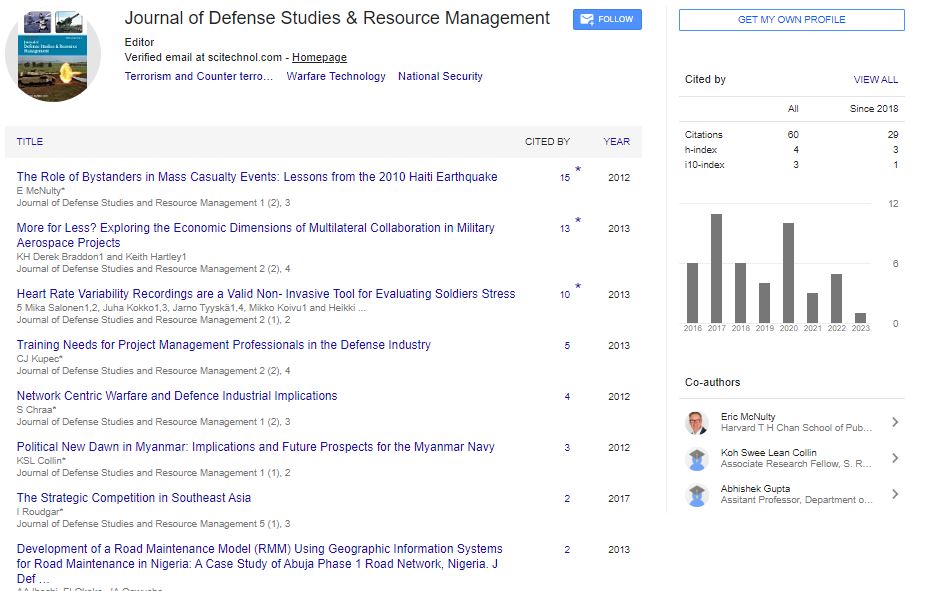Research Article, J Def Stud Resour Manage Vol: 2 Issue: 1
Heart Rate Variability Recordings are a Valid Non- Invasive Tool for Evaluating Soldiers’ Stress
| Mika Salonen1,2, Juha Kokko1,3, Jarno Tyyskä1,4, Mikko Koivu1 and Heikki Kyröläinen1,5* | |
| 1Department of Leadership and Military Pedagogy, National Defence University, PL7, 00861 Helsinki, Finland | |
| 2Reserve Officer School, Kadettikoulunkatu 6, 49400 Hamina, Finland | |
| 3Kaarti Jaeger Brigade, PL 6, 00861 Helsinki, Finland | |
| 4Karelian Brigade, Varuskuntatie 230, 46141 Vekaranjärvi, Finland | |
| 5Department of Biology of Physical Activity, 40014 University of Jyväskylä, Finland | |
| Corresponding author : Heikki Kyröläinen Department of Biology of Physical Activity, 40014 University of Jyväskylä, Finland E-mail: heikki.kyrolainen@jyu.fi |
|
| Received: February 07, 2013 Accepted: February 21, 2013 Published: February 27, 2013 | |
| Citation: Salonen M, Kokko J, Tyyskä J, Koivu M, Kyröläinen H (2013) Heart Rate Variability Recordings are a Valid Non-Invasive Tool for Evaluating Soldiers’ Stress. J Def Stud Resour Manage 2:1. doi:10.4172/2324-9315.1000107 |
Abstract
Heart Rate Variability Recordings are a Valid Non- Invasive Tool for Evaluating Soldiers’ Stress
The purpose of the present study was to investigate physiological responses and to evaluate heart rate variability as a non-invasive stress indicator during a 72-hour military field training (MFT). Ten healthy male soldiers (age 20 ± 1 yr.) participated in MFT. They slept approximately 2 h/day and ate only army field rations. During MFT, the soldiers’ mean (±SD) energy expenditure was 4646 ± 674, energy intake 2200 ± 326, and energy deficit (ED) 2405 ± 890 kcal⋅day-1.Throughout the entire training period, serum total testosterone (TES) reduced from 19.0 ± 3.0 to 12.6 ± 6.2 nmol⋅l-1 (p<0.001)
 Spanish
Spanish  Chinese
Chinese  Russian
Russian  German
German  French
French  Japanese
Japanese  Portuguese
Portuguese  Hindi
Hindi 